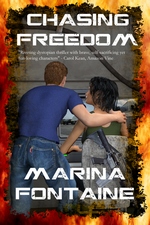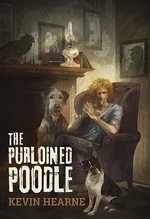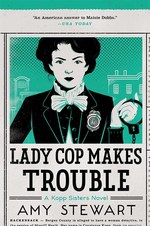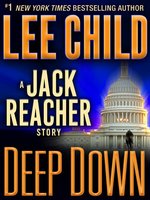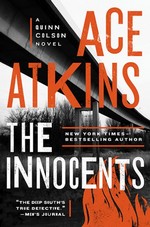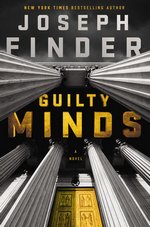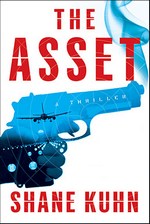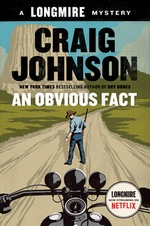 An Obvious Fact
An Obvious Fact
by Craig Johnson
Series: Walt Longmire, #12eARC, 320 pg.
Viking, 2016
Read: July 29 – 30, 2016


Craig Johnson is so consistent with these books that he makes it really hard to write about them. I’ve struggled with this one for weeks — how can I say something I haven’t before? I’m not sure I can, but I guess I can start with what makes this one different from the rest.
For starters, Henry’s borrowed Walt’s set of Sherlock Holmes (without his knowledge or consent, but who cares) and spends the novel quoting Holmes at inopportune times to his buddy. I laughed every time. Walt didn’t find it that amusing — and paid him back by talking about what a silly and reckless endeavor riding motorcycles is — much less racing/jumping/etc. He had plenty of opportunity to make these kind of remarks as the two of them were in Hulett, WY for the world’s largest motorcycle rally, where Henry is attempting to recapture a victory of his younger days.
Walt’s been brought in to help with the investigation of a motorcycle crash, the small local police force is stretched beyond itself due to the rally and really can’t take it on. It seems pretty cut and dry on the surface — just a bad break and a bit of careless driving. But every time Walt looks at another piece of evidence, he finds more reasons to doubt the obvious facts.
We learn a lot about Henry in this book — but he’s not really in it all that much (at least less than he’s been in others, lately). And while he’s not really at odds with Walt, you really can’t say that he’s on his old friend’s side throughout (nor is he really acting all that rationally).
Vic comes back to Wyoming, and injects her flair into the investigation and Walt’s life. She also continues to be the embodiment of many men’s dreams between her looks, brains, language, driving and shooting. I’m not going to say if she’s my Platonic ideal, I will say that for a totally unrealistic character, she’s a whole lotta fun.
The Whodunit was pretty easy, the Whydunit was trickier (and the Accessories to the Who were more difficult, but not hard). But, hey, we don’t read these books for the puzzle — we do it to watch Walt figure things out and to spend time with our friends from the Equality State (and the nations within it). In the end, this is just what you expect out of a Walt Longmire novel — some laughs, a nice little puzzle, a little fisticuffs, maybe a little gunplay (not necessarily a shoot-out). Well-paced, well-told, all in a day’s work for Johnson.
Disclaimer: I received this eARC from Viking via First to Read in exchange for this post — thanks to both for this.
—–




